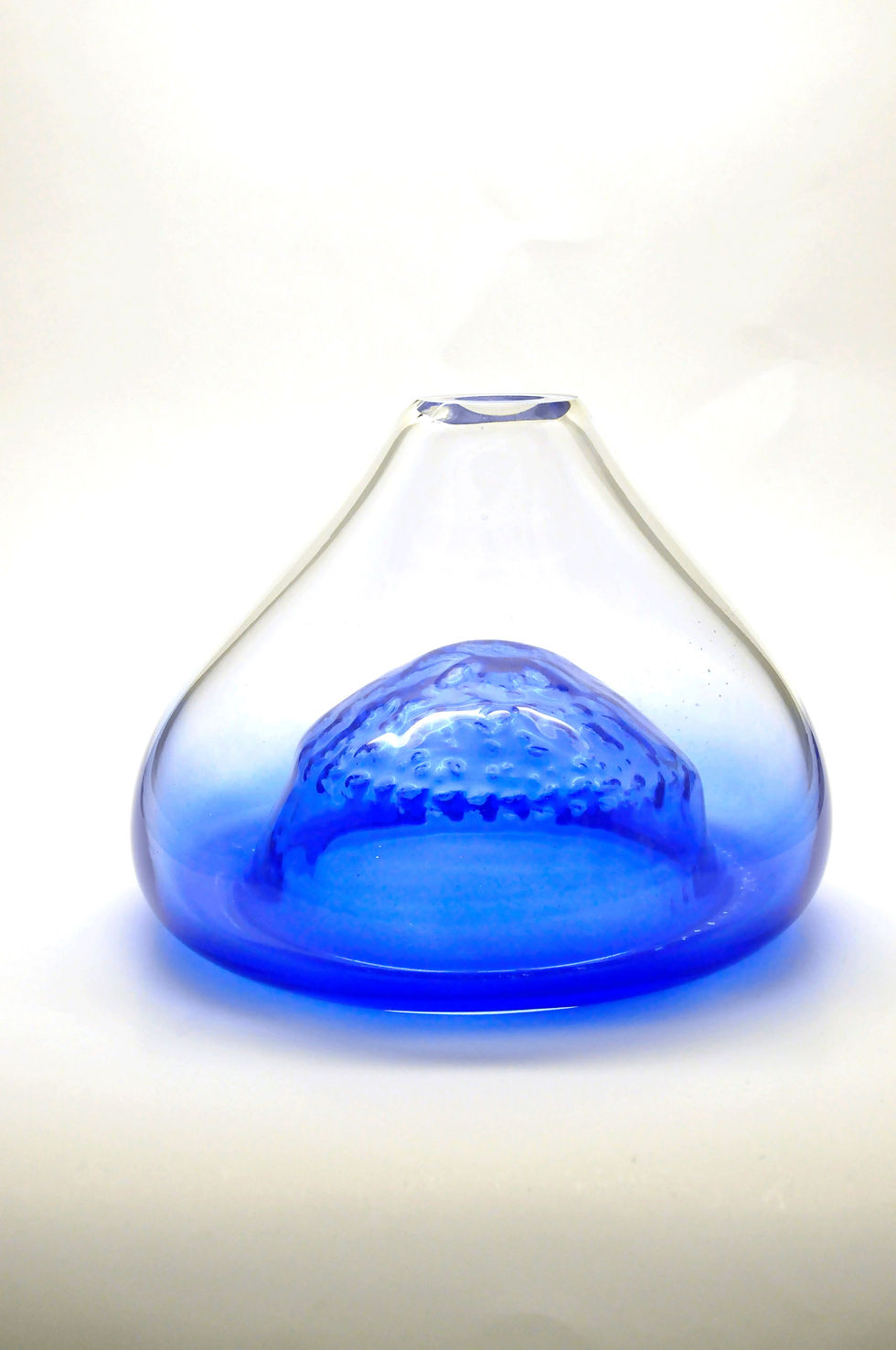Hefesto
Hefesto (Hephaestus), the Greek god of fire, of the forge, inspires this experimental series in glass blowing. This work is the result of an evolution of the Intuitions project that highlights an ancient indigenous technique: imprinted ceramics.
The glass welding, which is forged thanks to the heat power of the fire, and whose fluid materiality hypnotizes, is presented as a way to invoke Hephaestus.
Hefesto is a research on blown glass molding, focusing on the imprinted traces. The transparent materiality of the glass, which adheres to what it comes into contact with, operates as a form of archeology of the artisan techniques that were used to manufacture its moulds.
It is an experimental process that seeks technical solutions to a hybridisation of knowledge and artisanal languages.






The pieces were made at Ecomusée de l'Avesnois, Trélon France.




The productive process
Starting from the principle of the realization of a flexible mold for the production of textured pieces. How to develop a mold at low cost while developing a texture language?
I made flexible molds in mesh and aramid fiber fabric (resistant to high temperatures) that allowed the hybridization of vernacular knowledge, glass blowing, technical materials and potentially industrial processes.
Aramid fiber or kevlar is known for its technical strength and its application in bulletproof vests. In this case, it is chosen because of its high heat resistance.
Having many technical difficulties to make textured and low-cost glass blow molds, I chose to use this material to create my textured molds. Knitting is a textile technique that imitates basketry, maintaining a continuity of plastic language of that craft.